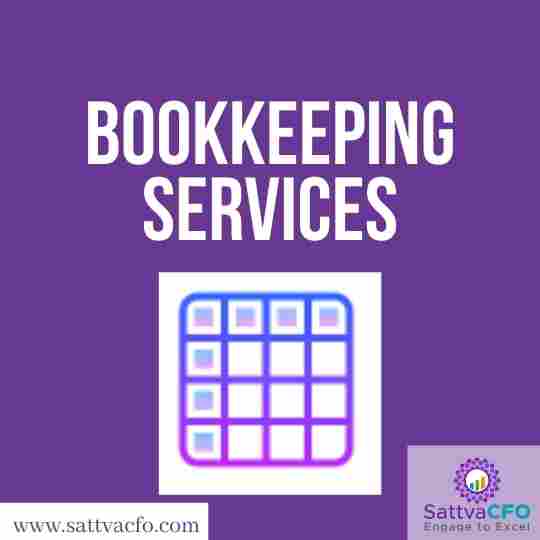What is Bookkeeping?
Bookkeeping is the method of recording financial transactions and is a component of the accounting process in businesses and corporations. It entails making preparations of source documents for all business activities, operations, and other activities. bookkeeping services near me, bookkeeping services for small business, online virtual bookkeeping services.
Who are bookkeepers?
A bookkeeper is in charge of capturing and preserving a company’s financial transactions, including purchases, expenditures, and overall revenue.
Why is bookkeeping important?
Bookkeeping is a necessary feature in your company for both legal and financial management. By maintaining adequate data, your company can obtain a picture of its safety in the form of financial statements such as a statement of income, balance sheets, cash flow statements, and many others.
What is the task involved?
Bookkeepers keep complete books on accounts receivable and payable, salary, daily financial entries, and bank reconciliation to supervise a company’s financial performance and regulation. They carry out daily bookkeeping tasks such as monthly financial reporting, general ledger entries, and compensation and adjustment recording.
The Accrual vs Cash Basis of Accounting
| Accrual Basis | Cash Basis |
| When cash is received, revenue is recognized. | Revenue is recorded when it is received. |
| When money is spent, it is recognized as an expense. | Acknowledges expenditures when they are billed |
| Tax payments are not made on funds that have not yet been obtained. | Taxes being paid on cash that is still owed to you |
| Smaller companies and sole traders with no inventory are the most likely to use it. | Necessary for companies with an income of more than $25 million. |
Definition- Accrual Accounting
Accrual accounting involves measuring a firm’s financial position and performance by recognizing economic trends irrespective of cash transactions.
Definition- Cash Basis of Accounting
A significant accounting system that acknowledges incomes and expenditures when cash is received or paid out is known as a cash basis. bookkeeping services near me, bookkeeping services for small business, online virtual bookkeeping services.
FAQs
How can I transition from in-house to outsourced accounting?
- Selecting the Best Accountant
- Preparing ahead of time
- Setting objectives and being aware of possible barriers
- Communication
What are the best ways to separate my business and personal finances?
- Acquire an EIN (Employer Identification Number).
- Open a bank account for your small business.
- Make your company official.
- All financial transactions should be classified.
- Differentiate your expenses.
- Reimburse Yourself.
- Separate Receipts are required.
How can I make my new business financially successful?
- Organize Yourself
- Maintain Extensive Records
- Examine Your Competitors
- Recognize the Risks and Benefits
- Stay Concentrated and Innovative
- Provide Excellent Service
- Maintain Consistency. bookkeeping services near me, bookkeeping services for small business, online virtual bookkeeping services.
What questions should I ask when choosing the right accountant for my business?
- What kinds of licenses do you have?
- How do you go about your business?
- How will you contribute positively to my firm?
- What common issues have you resolved for other companies in my industry?
- How approachable are you?
Is my current accounting firm providing quality service?
- Communicate with your clients regularly.
- Remain Proactive in Your Service Offerings
- Utilize Technology
- Promise to Build Trust
- Long-term Success Requires Efficient Customer Service
What should be included in my profit/loss sheet?
- Revenue (or Sales)
- Cost of Goods Sold (or Cost of Sales)
- Selling, General & Administrative (SG&A) Expenses
- Marketing and Advertising
- Technology/Research & Development
- Interest Expense
- Taxes
- Net Income
How much does monthly accounting cost? What factors go into the pricing?
If the company decides to hire a full-time bookkeeper, the monthly cost will be 25,000 and 50,000 INR.
- Costs
- Customers
- Positioning
- Competitors
- Profit
What makes you different from other monthly accounting services?
- We offer Accounting Services at a Low Cost.
- We save you time and money by eliminating the time and costs associated with hiring processes.
- We have expert accountants and bookkeepers on staff, and we can quickly scale accounting.
- We are your advisors.
What do your clients need to provide you with to do your job?
- Information on How to Contact them
- Client Background
- Account Information for the Web
What does the monthly accounting process look like?
- Keep track of all operational, financial transactions daily.
- Consolidate the subsidiary and general ledgers.
- Make a monthly journal entry.
- Reconcile your financial statements.
- Examine your revenue and expenses.
- Prepare financial reports.
- Review of management.
- Close the month’s accounting.
Why hire a monthly accountant instead of an annual one?
- Expert counsel
- Financial statements every month
- Consistent tax preparation and planning, as well as ongoing profit advice
- Proactive customer service
- Audit representation costs are spread over time, avoiding the costs and pressures of hiring and managing another employee.
When should I consider outsourcing my accounting?
If your company requires the resources of a comprehensive accounting team but cannot afford the costs and management time of a full-time accounting team, outsourcing your accounting functions is a very feasible, versatile, and turn-key option for the company.
What accounting system do you use?
Many accounting systems are used like Xero, Quickbook, Tally, Busy, Zoho Books, SAP, Oracle, etc.
Why should I choose SattvaCFO to outsource finance and accounting services?
- SattvaCFO offers Accounting Services at a Low Cost.
- We save you time and money by eliminating the time and costs associated with hiring processes.
- We have expert accountants and bookkeepers on staff, and we can quickly scale accounting.
- We are your advisors.
Do you have any experience in finance and accounting services outsourcing?
Yes, all our staff have professional qualifications in accounting & taxation.
Do I have to outsource my entire project, or am I allowed to pick certain tasks that I want to outsource?
The level of outsourcing depends on the client’s requirements.
What is the skill level of your finance and accounting services team?
Our Finance & Accounting Team have professional qualifications in Accounting, Company Law and Taxation.
What are your payment modes?
We accept all modes of payment.
Can you provide a demo?
Yes, we do provide demo basis clients’ requirements.
Do you do provide a free trial?
Yes, we do provide free trial basis clients’ requirements.
Accounting Glossary
Balance Sheet
A balance sheet is a financial statement that reports a company’s assets, liabilities, and shareholders’ equity at a specific point in time. It serves as the foundation for calculating rates of return and evaluating its capital structure.
Inventory
Inventory, also known as stock, refers to the goods and materials that a company keeps for resale, production, or use.
Liability
Liability is defined as the future economic benefits sacrificed by the entity to other entities as a result of past transactions or other past events.
Accounting Period
An accounting period is a period of time that covers specific accounting functions. It can be a calendar or fiscal year, but it can also be a week, month, or quarter.
Cash Flow
A cash flow is a physical or fictitious movement of money.
Accounting
Accounting is the process of recording a company’s financial transactions.
Budget
A budget is the sum of funds allocated for a specific purpose and an overview of intended expenses and proposals for how to meet them.
Cost Accounting
Cost accounting is defined as “a systematic set of procedures for recording and reporting aggregate and detailed measurements of the cost of manufacturing goods and performing services.”
Income Statement
An income statement is a financial statement that shows the income and expenses of a company.
Valuation
The process of determining the present value of an asset is known as valuation. Valuations can be performed on either assets or liabilities.
Working Capital
Working capital is a financial metric representing the amount of operating liquidity available to a company, organization, or other entity, including governments.




